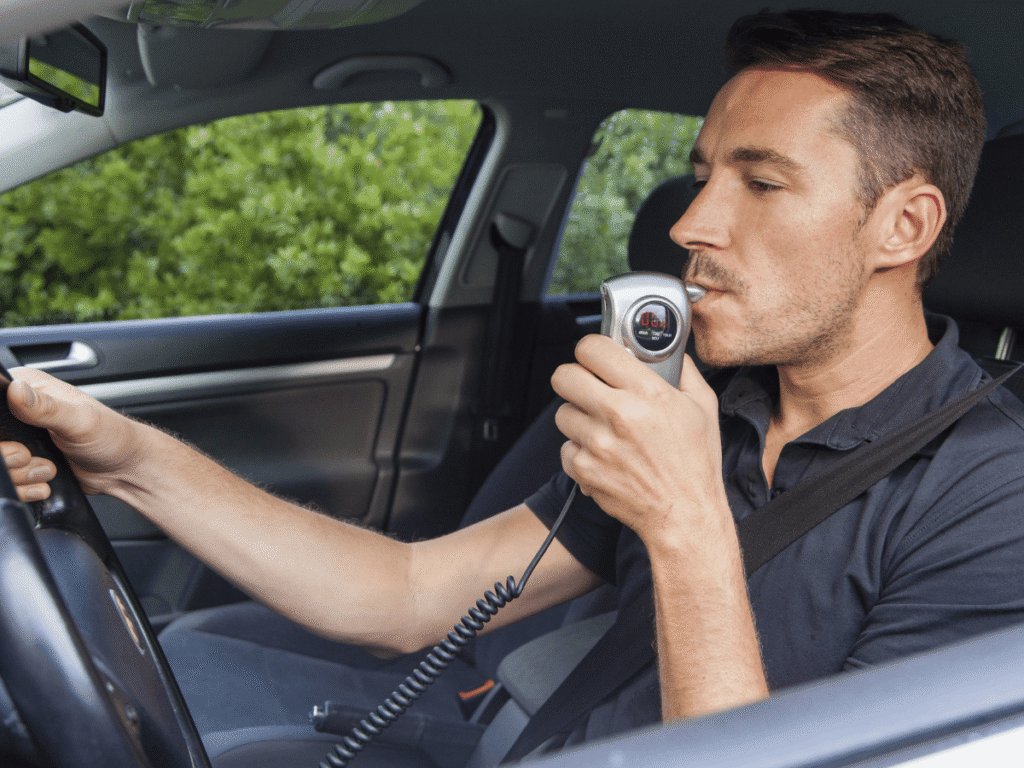How AI Breathalyzers Could Change DUI Arrests in Wyoming

There’s no denying that technology is rapidly changing the face of law enforcement, especially in the realm of DUI investigations.
One of the most significant shifts on the horizon is the potential adoption of AI breathalyzer DUI technology in Wyoming, a development that promises to dramatically impact drivers’ rights, legal procedures, and the role of trial attorneys in these cases.
At Steven Titus & Associates, P.C., we watch these changes closely so we know how to prepare individuals to navigate the legal implications of machine-learning alcohol test results.
What Are AI-Enhanced Breathalyzers?
Unlike traditional breathalyzers, which simply measure the blood alcohol content (BAC) in a person’s breath, AI-enhanced breathalyzers use machine learning algorithms to improve testing accuracy and reduce human error. These devices analyze alcohol levels in addition to environmental factors, user behavior, and real-time data to make smarter assessments.
These smart devices may include features like:
- Facial recognition confirms the identity of the test subject
- Environmental sensors detect if external factors (such as cleaning chemicals or residual mouth alcohol) are present
- Continuous learning refines their ability to differentiate between false positives and true BAC levels
The promise of smart BAC testing is greater accuracy and reliability in determining intoxication levels. But this raises new questions about fairness, privacy, and legality, especially under Wyoming DUI law.
How New Machines Differ from Traditional BAC Tests
A standard breathalyzer measures ethanol concentration in the breath and converts that into a BAC level using a preset algorithm. However, these machines often suffer from calibration issues, operator error, and external interference. In Wyoming, DUI defense lawyers can build strong cases based on these flaws.
The manufacturers of AI breathalyzers say they can reduce or eliminate these issues using:
- Sensor redundancy: Multiple internal checks are used to verify the accuracy of results.
- Automated calibration: This is used to reduce the reliance on human maintenance.
- Predictive modeling: The device learns from previous results to flag inconsistent readings.
This represents a dramatic change in how DUI arrest technology could be used throughout Wyoming.
The Importance of Scrutinizing This New Technology
The use of AI in BAC testing may seem like a step forward, but that isn’t necessarily true. Advocates argue that more accurate readings mean fewer false positives, which could protect sober drivers from wrongful arrests. But accuracy doesn’t guarantee fairness.
AI tools are only as good as the data they’re trained on. This means that algorithms that are not properly validated can introduce new forms of bias or incorrect assumptions.
Just because a device uses advanced technology, it doesn’t mean it complies with all the legal standards. Wyoming DUI law is based on very strict rules around probable cause, testing procedures, and a chain of custody.
Legal Challenges We Expect to See in Wyoming
If AI breathalyzers are introduced in Wyoming, trial attorneys will likely begin to challenge their use on several fronts.
Admissibility in Court
For a new type of evidence to be admissible in Wyoming courts, it must meet standards for scientific reliability. Attorneys may question:
- Whether the AI model has been peer-reviewed
- Whether the device’s internal workings are transparent
- Whether results can be reproduced and verified by independent experts
Chain of Custody Concerns
Smart devices that automatically send data to law enforcement databases may raise chain-of-custody issues. If the data is altered, corrupted, or accessed improperly at any stage, it could be grounds for exclusion from trial.
Fourth Amendment and Privacy Issues
Does an AI device collecting facial recognition data and behavioral analytics go beyond what is legally allowed under the Fourth Amendment? Wyoming courts will need to determine whether this data collection qualifies as an unreasonable search.
Cross-Examination Challenges
One of the pillars of criminal defense is the ability to challenge evidence. With traditional breathalyzers, this often involves questioning the officer, the calibration log, or the operator’s training.
With AI systems, who—or what—can be cross-examined? The algorithm? The engineer who coded it? These are critical issues that Steven Titus & Associates, P.C., is prepared to address head-on.
Will These Devices Improve Breathalyzer Accuracy?
It goes without saying that breathalyzer accuracy has been an issue in many DUI cases. Calibration errors, mouth alcohol, and improper administration have all resulted in unreliable test results.
AI breathalyzers won’t eliminate all sources of error. For example, these devices might still struggle in cases involving:
- Individuals with medical conditions like acid reflux or diabetes
- Recent use of alcohol-based products (mouthwash, sanitizers)
- High altitudes and cold environments, which are common conditions in parts of Wyoming
How Trial Attorneys Could Adapt
As these technologies become more common, DUI defense will become more technical. That means attorneys will need to (a) understand how machine learning alcohol tests work, (b) identify weaknesses in the software, and (c) consult with data scientists or engineers when necessary.
At Steven Titus & Associates, P.C., we’re constantly updating our legal strategies to anticipate technological changes. We’re particularly focused on the evidentiary chain, procedural integrity, and constitutional limits.
Whether you were tested with a traditional device or a smart breathalyzer, it’s crucial to understand that a DUI arrest does not mean a conviction. You have the right to challenge the results and the procedures used during your arrest.
Whether it’s a standard breathalyzer or a high-tech AI system, we are ready to thoroughly investigate every detail to protect our clients.
Talk to an Experienced Wyoming DUI Trial Attorney Today
If you’ve been arrested for DUI in Gillette or anywhere in Campbell County, don’t wait to seek legal guidance. You need aggressive and informed representation that’s ready to tackle emerging technology in DUI enforcement.
An experienced DUI legal defense lawyer at Steven Titus & Associates, P.C., is ready to fight for you in court. We’re deeply familiar with local law and are available to answer your call 24/7.
Call (307) 257-7800 today for a free consultation, or contact us online to schedule your case review.

Your FREE Case Strategy Session
On All Injury and Criminal Cases
Contact our office right now to speak to
someone who wants to help you.